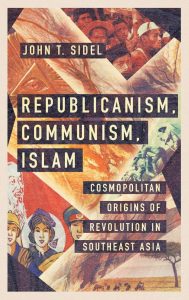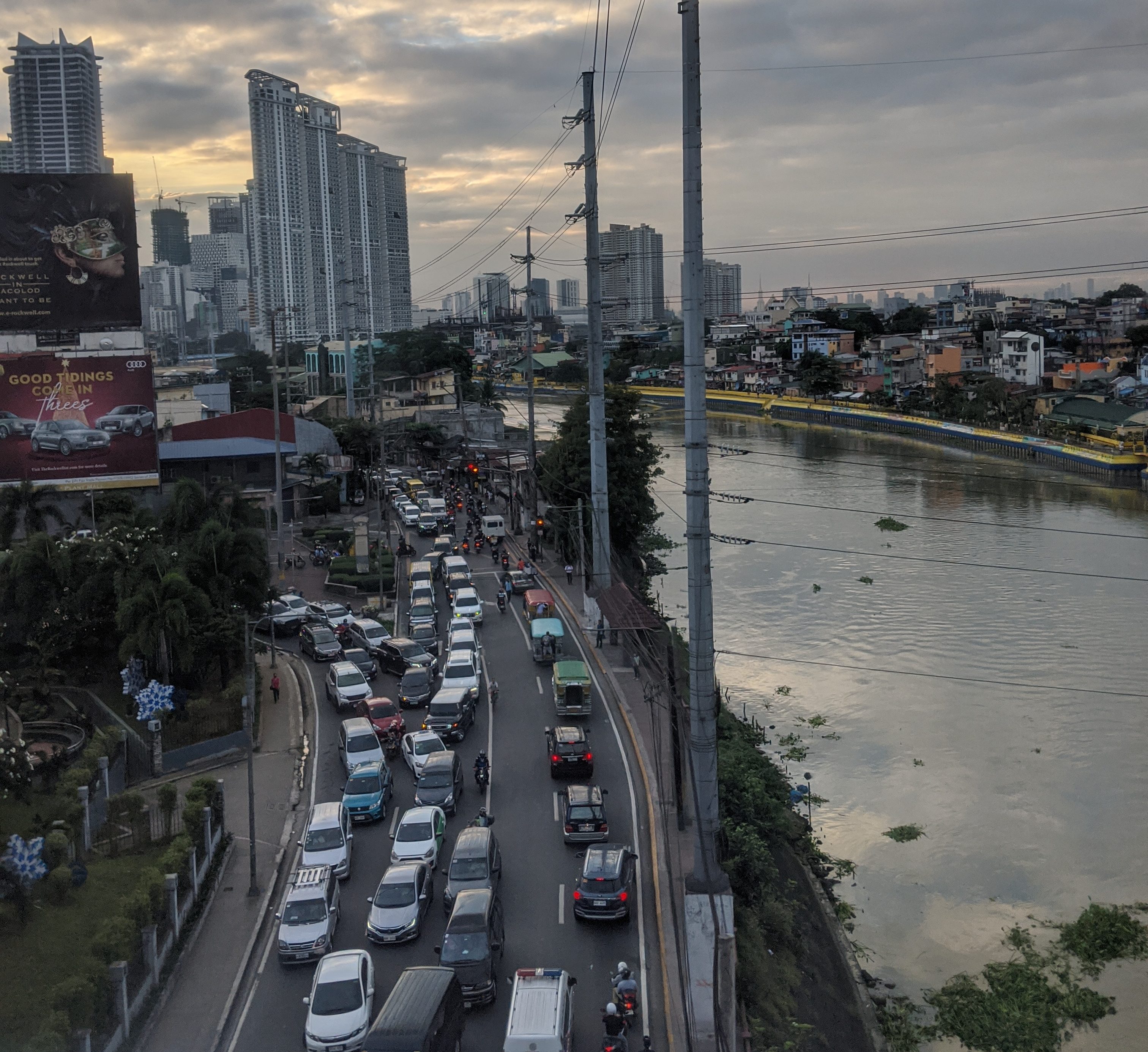The LSE’s Saw Swee Hock Southeast Asia Centre has a distinctive role to play as a hub and host for Southeast Asian Studies in London, the UK, Europe, and beyond writes SEAC Director, Professor John T. Sidel
_______________________________________________
As the incoming Director of LSE’s Saw Swee Hock Southeast Asia Centre, I’m embarking on this new role and set of responsibilities with a mixture of excitement and trepidation. On the one hand, I’m committed to continuing and building on the great work of my predecessor, Professor Hyun Bang Shin, over his five years as an exceptionally active and innovative Centre Director. On the other hand, beyond ‘keeping on keeping on’, I’m also keen to make my own contributions to SEAC and the study of Southeast Asia at the LSE and beyond. So at this juncture I would like to take a moment to reflect on the position that the LSE has occupied within Southeast Asian Studies over the years in order to better understand what the School, the Southeast Asia Centre, its scholars, and its students have to contribute to this field of academic research and analysis today and into the future.
For many, many years, Southeast Asian Studies at the LSE was synonymous with the eminent and influential figure of Michael Leifer, who worked at the School in various capacities from 1969 to his death in 2001, most notably as Professor of International Relations, Pro-Director, and Director of the Asia Research Centre. Leifer was the world’s most prominent and prolific scholar of the international politics of Southeast Asia, and he played a central role in the development of this field of study through his writings, teaching, supervision and mentoring of generations of PhD students and young scholars, and public engagement in London, Singapore, elsewhere in Southeast Asia, and beyond. Thanks to him, the LSE played a role in the schooling and socialization of generations of Southeast Asian diplomats. Thanks to him, the School developed close ties with the region’s embassies in London, its foreign policy think tanks, and its policymakers and political establishments.
This kind of profile for the LSE within the world of Southeast Asian Studies contrasted quite starkly with that of the nearby School of Oriental and African Studies (SOAS), with its roots in British imperialism and colonialism, its emphasis on the cultures, histories, and languages of Southeast Asia, and, by the end of the Cold War era, its greater critical distance on the regimes entrenched in the region. For example, prominent Indonesian students at SOAS during my years teaching there (1994-2004) included the leading human rights lawyer Bambang Widjojanto and the most celebrated student activist – and political prisoner – of the late Suharto period, Budiman Sudjatmiko. Prominent Indonesian students at the LSE, by contrast, included the likes of Juwono Sudarsono, who served in such positions as Minister of Defence and Ambassador to the UK, and, more controversially, Dino Patti Djalal, the Suharto regime’s point man on East Timor and later Indonesia’s Ambassador to the United States.
The LSE’s profile and position in Southeast Asian Studies has also contrasted with that of leading centres for the study of the region in the United States, such as Yale and Cornell where I studied in the mid-late 1980s and early-mid 1990s. During the period of heightened American military intervention in Indochina, a set of ‘area studies’ centres sprang up which combined facilities for tuition in the major languages of Southeast Asia with support for interdisciplinary studies that ranged from anthropology, archaeology, art history, and ethnomusicology to history and political science. The U.S. government’s strategic priorities notwithstanding, these centres for Southeast Asian Studies were solidly grounded in the humanities and followed the prominent anthropologist – and Indonesia specialist – Clifford Geertz in privileging interpretivist methods, ‘local knowledge’, and the lived experiences and symbolic (self-)representations and (self-)understandings of Southeast Asians themselves, in ways which arguably enabled the increasing prominence of Southeast Asian – and Southeast Asian-American – scholars within the field.
Today, more than twenty years since Michael Leifer’s passing and the eclipse of ‘area studies’ in North America and Europe (as seen in the recent demise of the Nordic Institute for Asian Studies (NIAS) in Copenhagen), the LSE stands as a leading hub for the study of Southeast Asia with its own distinctive features. The School – and the Southeast Asia Centre – boasts a full complement of anthropologists and historians whose research and writings focus on the region: Catherine Allerton, Fenella Cannell, Nicholas Long, and Hans Steinmüller in the Department of Anthropology, Kirsten Schulze and Qingfei Yin in International History, and Kent Deng in Economic History. But the LSE is essentially a social-science institution (cum business school), and thus alongside two political scientists – myself and Jurgen Haacke of the Department of International Relations – our other Southeast Asia specialists are based in broadly-based disciplines which are weakly represented as such in American universities, namely development studies and geography. The Department of International Development includes two senior Southeast Asia specialists – Tim Forsyth and James Putzel – and the Department of Geography and the Environment features three scholars who work on the region — former Centre Director Hyun Bang Shin, Laura Antona, and Tom Smith. These two departments are both notable for their intellectual diversity and their interdisciplinarity, as reflected in the work of these scholars.
While Southeast Asian Studies at the LSE cannot match the scale and scope of world-leading hubs for the study of the region like the National University of Singapore (NUS) and the Australian National University (ANU), the embeddedness of our specialists on the region within an institution and intellectual environment dedicated to the development of the social sciences provides the basis for our signature strengths. On the one hand, our departments and disciplines tend to privilege puzzles and questions, developments and trends, that are global rather than country- or region-specific, both in the courses we teach and the venues where we publish our work. On the other hand, our colleagues include specialists on East and South Asia, Latin America, and the Middle East, as well as scholars whose work focuses on Europe and/or North America. This kind of milieu encourages and informs a way of thinking, researching, and writing about Southeast Asia in which comparisons and connections with other parts of the world figure prominently. The cosmopolitanism and diversity of LSE’s students – including its many Southeast Asian students – reinforces these in-built tendencies in our work, as does our location in the great city of London. The ongoing processes of decolonizing – and de-provincializing – Southeast Asian Studies will thus inexorably continue to unfold over the years ahead.
Against this backdrop, it seems to me, the LSE’s Saw Swee Hock Southeast Asia Centre has a distinctive role to play as a hub and host for Southeast Asian Studies in London, the UK, Europe, and beyond. In today’s globalized world of ‘Big Data’, Wikipedia, YouTube, and ChatGPT, there is still a role for scholars with expertise on the countries of Southeast Asia. Not as old-fashioned Orientalist ‘authorities’ but as rank-and-file social scientists with both deep appreciation for the specificity of local context, on the one hand, and interest in comparisons and connections to the world beyond, on the other. So I hope that the LSE’s Southeast Asia Centre will continue to serve as a host and hub for empirically rich and analytically rigorous scholarship on Southeast Asia, complementing and contributing to scholarship on the region elsewhere across the world in ways which help researchers, students, and other interested audiences to understand and engage with vital issues in Southeast Asia over the years ahead.
______________________________________________
*Banner photo by Sara on Unsplash
* You can learn more about Prof John T. Sidel in SEAC’s ‘Spotlight On…’ feature.




